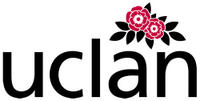 There has been much talk of late about crises in the media. Crises of trust. Crises of competence. Crises of confidence. And, as may be expected, there has also been a great deal said about what the solutions are.
There has been much talk of late about crises in the media. Crises of trust. Crises of competence. Crises of confidence. And, as may be expected, there has also been a great deal said about what the solutions are.But, perhaps, those concerned about the state and future of journalism would do well to pause and consider the advice of management sage Peter Drucker: In the 20th century, great leaders gave great answers. In the 21st century, however, great leaders will ask great questions.
If that is so, what are the great questions that journalism leaders should be asking?
That is the question we will explore during the first Journalism Leaders Forum, 7-9pm British Summer Time (GMT+1) on Tuesday, 11 October 2005, in Greenbank Auditorium, Lancashire Business School, University of Central Lancashire, Preston, UK.

 Keith Sutton (far left), president of the UK Society of Editors, Mary Glick, associate director of the American Press Institute, and Wilf Mbanga (above right), editor of The Zimbabwean, are amongst those on the panel. François Nel, course leader for the Journalism Leaders Programme, will chair the session.
Keith Sutton (far left), president of the UK Society of Editors, Mary Glick, associate director of the American Press Institute, and Wilf Mbanga (above right), editor of The Zimbabwean, are amongst those on the panel. François Nel, course leader for the Journalism Leaders Programme, will chair the session.To attend this free programme on the day - as well as the reception from 6:30p - please RSVP to leaders@ukjournalism.org . If you can't be there in person, there are other ways to join the discussion. You can post your questions and comments on this site, or you can view the live Webcast at: http://breeze01.uclan.ac.uk/r81768061/.

Better still, do both. And let's get the discussion going.

3 comments:
A 2001 symposium on the state of journalism education in the US focused on three main challenges:
1. The need to focus on whether journalists are being trained to serve to the public, rather than whether they are being trained to meet the demands of industry leaders; or at least, how they can work together
2. The need to address challenges posed by economic, technological and social change
3. The need to make journalism education and practice diverse and global.
Personally, I find the first question the most interesting, and perhaps the most challenging for "journalism leaders".
I wonder what the panel makes of the discussion around citizen journalism. I see that the BBC is now thinking of itself as a facilitator of news, passing on information generated by all kinds of other people. Does this mean that we resign ourselves to the irrelevance of professional standards? That we forget about making a particular contribution to checking the reliability of information? Franz Kruger, Wits University, South Africa
I would be interested to know whether challenges to traditional media classified sales, in form of things like Craigslist, are on the agenda for editors worrying about losing a chunk of their financial support from the business side of their operations. Obviously decreasing revenues would, on some levels, impact of the availability of resources for editorial staff.
Post a Comment